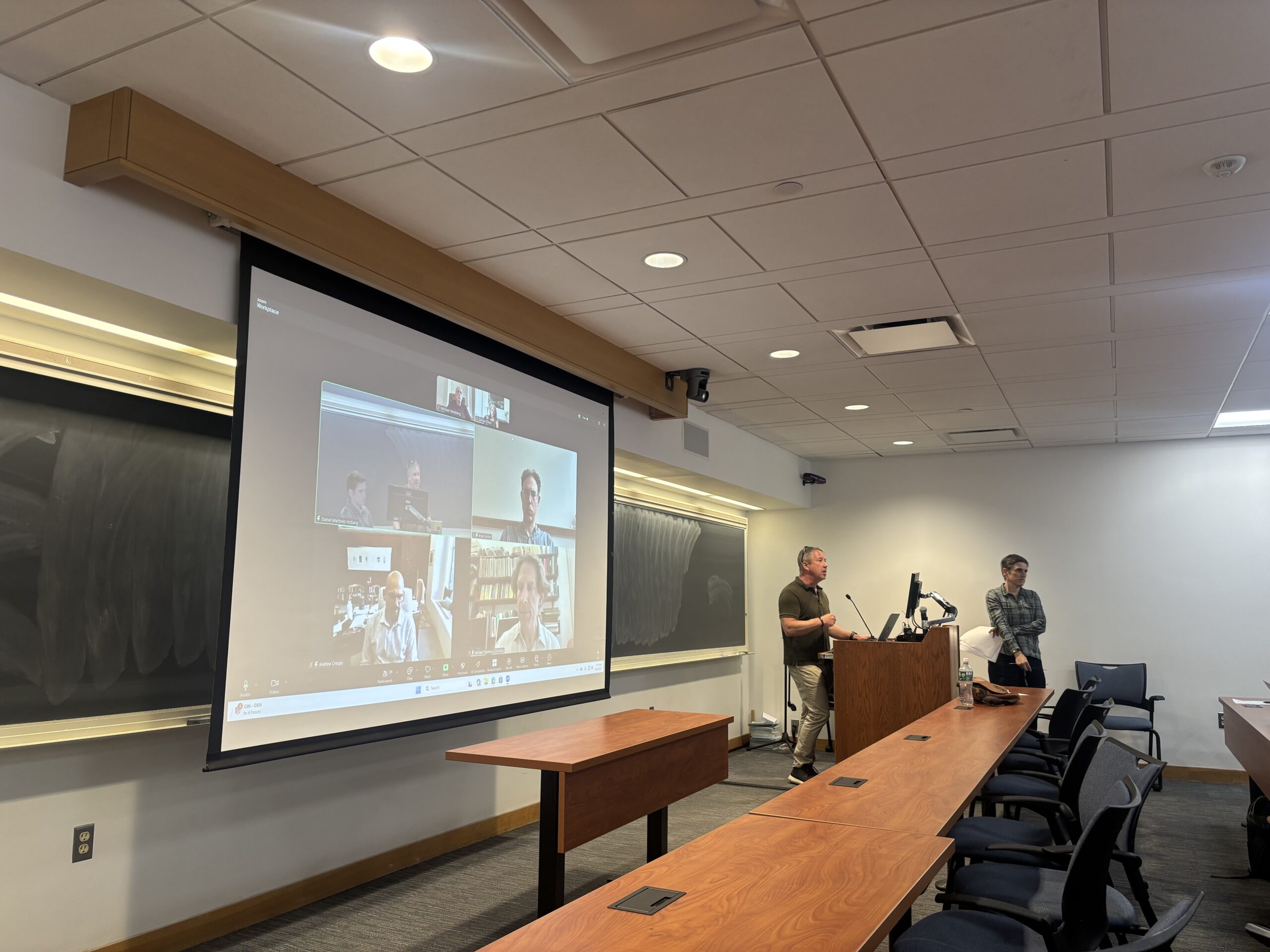Faculty group hosts panel on preparing for possible Trump intervention
On Monday afternoon, Yale’s chapter of the American Association of University Professors hosted faculty leaders from across the nation to discuss faculty organizing and negotiations with the federal government.

Jaeha Jang, Contributing Photographer
Faculty leaders from three universities that have settled or are negotiating with the Trump administration spoke to Yale professors Monday at an event hosted by Yale’s chapter of the American Association of University Professors.
The panelists — which included leaders of AAUP chapters at Brown, Columbia and Harvard — stressed the importance of faculty organizing in the face of the federal government’s attempts to influence universities. The three represented schools have each faced scrutiny from the Trump administration, which threatened to restrict their federal grants. Brown and Columbia have since brokered agreements with the administration, making school policy concessions in exchange for the restoration of funding.
The panelists spoke virtually to an audience of more than 70 professors across Zoom and in person.
“Our greatest success has not been with influencing university policy,” Michael Thaddeus, the acting president of Columbia’s AAUP chapter, said. “Our greatest successes have been in the court of public opinion, where we’re all aligned about something and we’re able to stand together and speak together.”
According to Daniel HoSang, the president of Yale’s chapter of AAUP, while Yale hasn’t had a formal settlement with the federal government, yesterday’s panel provided “the benefit of thinking ahead about what could be on the horizon.”
He added that in a recent meeting with AAUP chapters across Connecticut, Sen. Chris Murphy asserted that Connecticut universities like Yale that have been spared from direct funding cuts so far may ultimately face serious threats from the federal government.
“The notion that unless there is some kind of settlement or unless funds are held up, the University and faculty are free and clear, is just erroneous on so many accounts,” HoSang said.
Amy Kapczynski LAW ’03, a professor at Yale Law School who kicked off the panel, discussed the Trump administration’s general demands to universities and the differences between Brown and Columbia’s settlements. While Columbia’s settlement focused on campus discipline and oversight of certain academic areas, Brown’s settlement adopted the federal government’s executive order on the definition of gender, Kapczynski said.
Thaddeus said that while Columbia has a long-held reputation as an “argumentative, contrarian place where everyone has a different opinion,” recent developments have highlighted the importance of faculty organization and forming coalitions with students, alumni, the press and local communities.
The panel also featured Veena Dubal, a law professor at the University of California, Irvine, and the general counsel for the national AAUP, who emphasized that legal strategies against the federal government cannot be successful “in the absence of really robust organizing” among faculty.
Alessandro Gomez, a Yale professor of mechanical engineering and materials science who attended the event, said although Yale has not yet been “hit directly,” he thinks the event successfully prepared faculty for the potential negotiations between Yale and the federal government.
“I don’t think in the long term, maintaining a low profile would eventually bear fruit because sooner or later, they will pass certain restrictions or laws or certain whatever it is that they will do, they will affect us, and we better be prepared by that point with faculty organization,” he said.
Gomez said he would like to see hundreds of faculty attending these meetings.
Monday’s panel came as Yale’s chapter of the AAUP shifts its priorities from receiving a public statement from the University administration in defense of higher education to supporting and advising faculty with more specific initiatives.
The national AAUP was founded in 1915.







